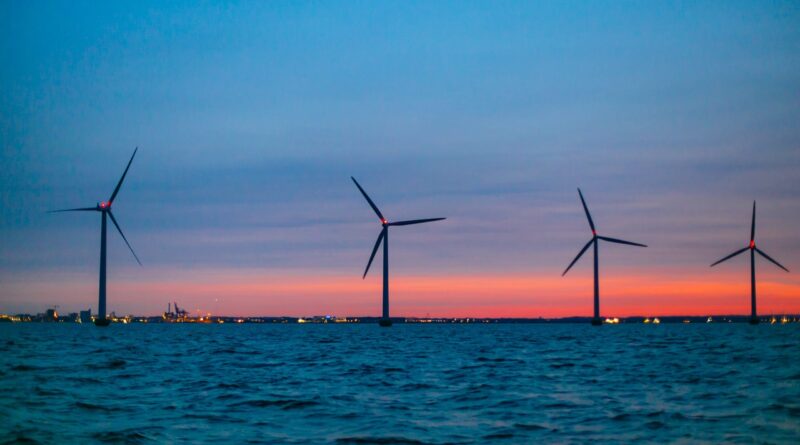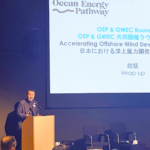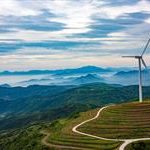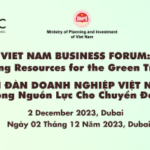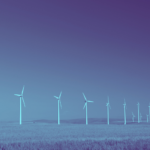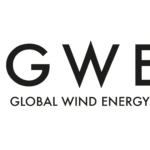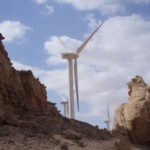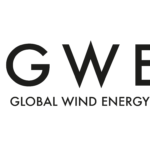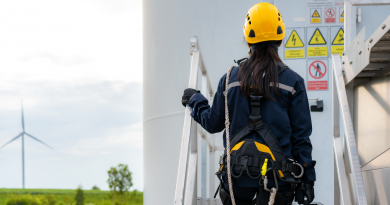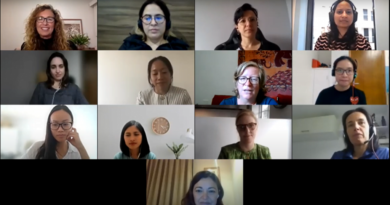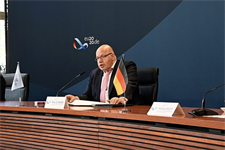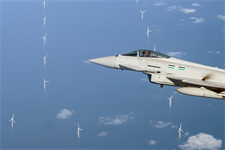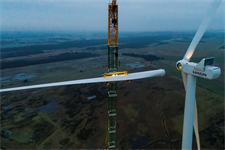An open letter from the global wind energy industry to G20 and world leaders: Renewable energy can steer us out of the current crisis
Energy Disrupter

In the last two decades, the global wind industry has amassed a bedrock of experience across developed and developing economies. We have built GW-scale pipelines in the Americas, nurtured thriving green industrial hubs throughout Europe, and developed robust supply chains from Latin America to Africa to South East Asia. We hold a track record of safety and innovation in the energy sector, creating powerful and efficient wind turbines and cultivating a global workforce of 1.4 million people. Innovation and scale have driven down the costs of wind energy, to the point that global average costs for new onshore wind projects are around 40% less than for new coal or gas-fired power projects.
The G20 already houses the top wind energy countries, including China, the US, Germany, India, Spain, the UK, France and Brazil. There is 56,000 GW of offshore wind technical potential across G20 countries, and just a fraction of members, including Argentina, Australia, Brazil, Canada, China, Japan, Indonesia, Mexico and South Africa and the US, host at least 296,000 GW of onshore wind potential. Most of this global wind resource remains untapped.
Meanwhile, at the current pace of growth, we are only on-track to reach less than two-thirds of the global wind capacity required by 2030 for a net zero and Paris-compliant pathway (see Annex).
We ask G20 leaders to work with industry to shift gears on the clean energy transition. Wind and renewable energy are the way out of our collective energy security and climate crises. Accelerating their deployment will require decisive and urgent policy commitments in nine action areas:
1. Scale up ambition and higher volumes for wind power as part of a sustainable energy mix, and reflect this in updated Nationally Determined Contributions (NDCs) by the end of 2022, comprehensive national climate and net zero strategies and short- and long-term energy plans. This can provide the long-term visibility needed to support large-scale investments.
2. Urgently streamline permitting schemes for grid-scale renewable energy projects to accelerate wind energy deployment and build a net zero-compatible project pipeline.
3. Commit to action plans to rapidly build out electricity grids for integration of renewable energy and cross-sector decarbonisation.
4. Evolve energy markets to send meaningful investment signals in line with energy security and net zero goals. This includes ensuring regulatory stability for investments, and access to long-term contracts or PPAs for renewable energy.
5. Avoid long-term lock-in of fossil fuel-based generation in the current energy security crisis.
6. Develop cohesive and inclusive policies to enact a just and equitable energy transition, which can contribute towards industrialisation of developing economies and diversification of supply chains to improve energy security.
7. Ensure national and regional finance adhere to robust climate benchmarks and guardrails for a net zero, 1.5°C-compliant pathway.
8. Progress the implementation of the global rulebook on robust carbon pricing, particularly Articles 6.2 and 6.4 of the Paris Agreement.
9. Foster multilateral renewable energy partnerships and trade agreements in support of the energy transition among the G20, to improve collaboration on shared challenges.
Policy responses to the current crises to date, from REPowerEU in Europe to the Inflation Reduction Act in the US, have demonstrated that G20 governments can act resolutely to address systemic threats to the economy and society. Through similar efforts, progress in the above nine action areas can be achieved within the next few years to speed up renewable energy deployment.
We, the undersigned representatives of the global wind and renewables industry, are ready to work with G20 policymakers, leading international energy institutions, multilateral development banks and leaders of wider global institutions like the UNFCCC and COP27 to foster a more resilient and decarbonised global energy system based on renewable energy.
Signatories
1. Alistair Phillips-Davies, CEO, SSE
2. Ben Backwell, CEO, Global Wind Energy Council
3. Chris Antonopoulos, CEO, Lekela Power
4. Dan McGrail, Chief Executive, RenewableUK
5. Ditlev Engel, CEO, Energy Systems, DNV
6. Elbia Gannoum, CEO, ABEEólica – Associação Brasileira de Energia Eólica
7. George Aluru, Chairperson, Electricity Sector Association of Kenya
8. Giles Dickson, CEO, WindEurope
9. Henrik Andersen, Group President & CEO, Vestas Wind Systems A/S
10. Ignacio S. Galán, Chairman and CEO, Iberdrola
11. Jochen Eickholt, CEO, Siemens Gamesa Renewable Energy
12. Jon Salazar, CEO, Gazelle Wind Power
13. Jonathan Cole, CEO, Corio Generation
14. Li Junfeng, President, Chinese Renewable Energy Industries Association
15. Mads Nipper, CEO, Ørsted
16. Mary Quaney, Group CEO, Mainstream Renewable Power
17. Michael Hannibal, Partner, Copenhagen Infrastructure Partners 1
8. Miguel Stilwell d’Andrade, CEO, EDP and EDPR
19. Niveshen Govender, CEO, South African Wind Energy Association
20. Qin Haiyan, Secretary General, Chinese Wind Energy Association
CC
COP27 President Designate
UN Secretary General
UNFCCC Executive Secretary
SE4All CEO
IRENA Director General
IEA Executive Director
The CEOs/Presidents of the Asian Development Bank, African Development Bank, Asian Infrastructure Investment Bank, European Bank for Reconstruction and Development, European Investment Bank, World Bank Group, Inter-American Development Bank and Islamic Development Bank, as well as Climate Investment Funds and Global Energy Alliance for People and Planet
Members of the Energy Transition Council
WEF Executive Chairman

